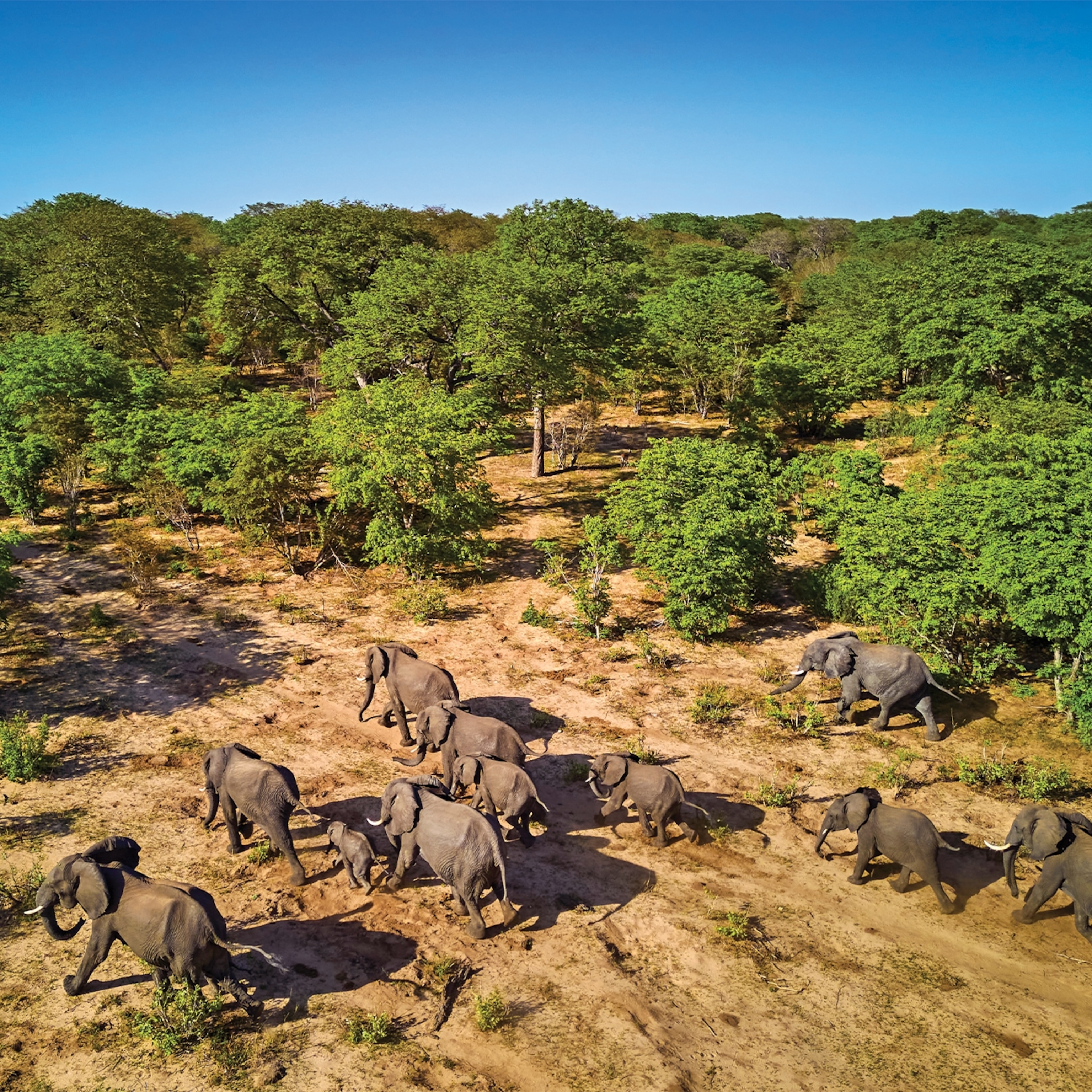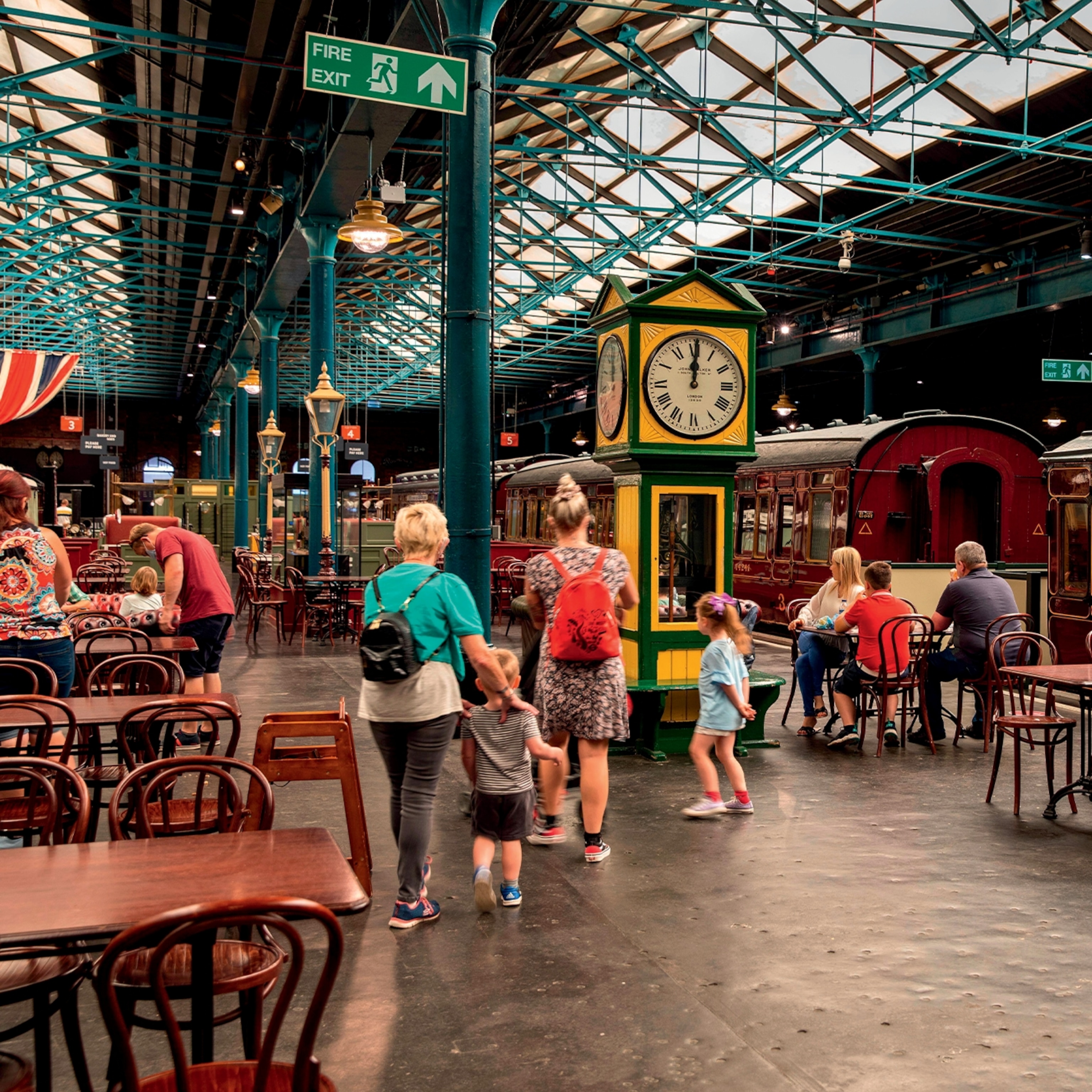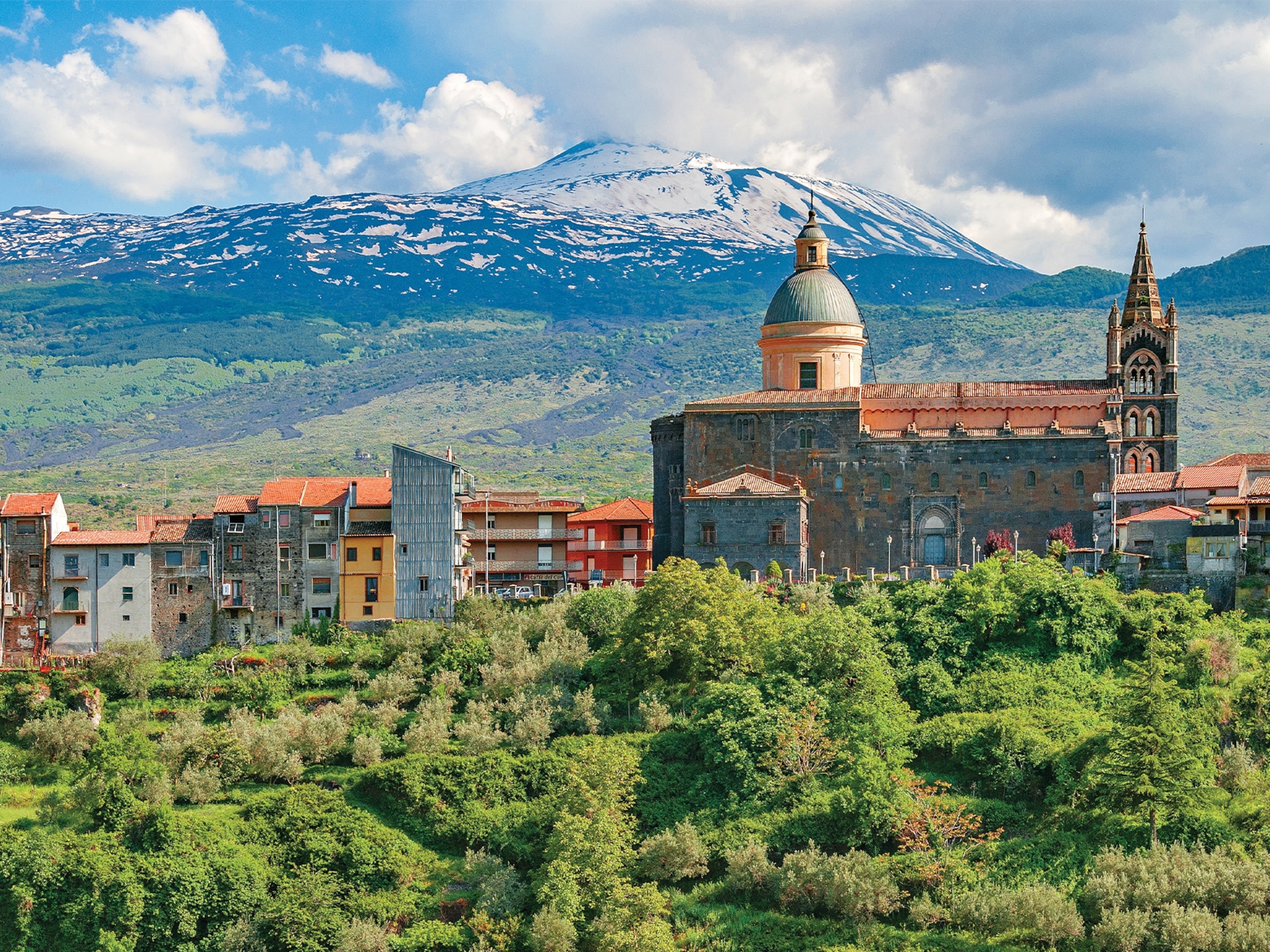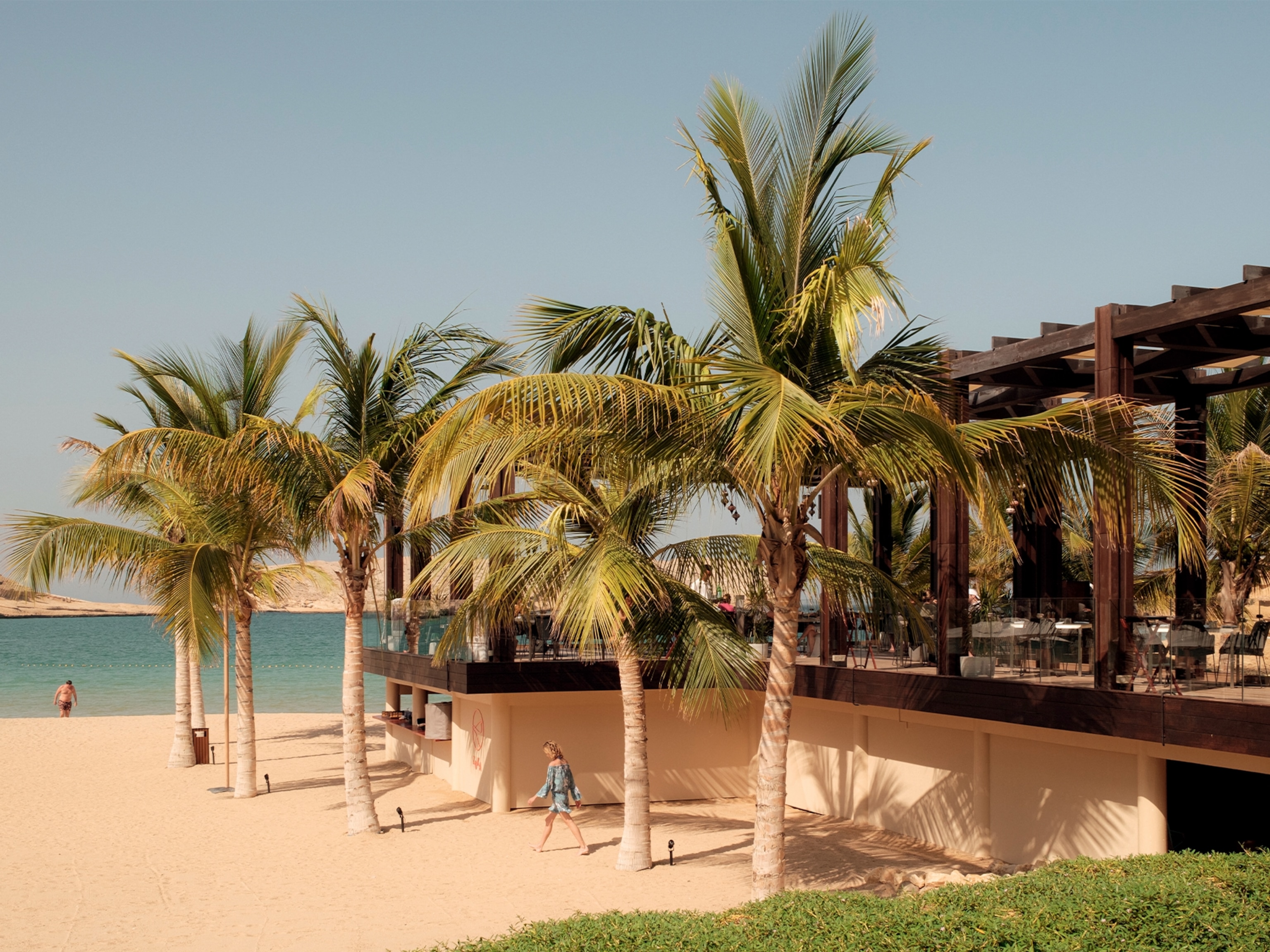Destination dupes and cowboy core—how travel will look in 2025
AI itineraries and budget long-haul flights are among the key developments set to influence travel in the year ahead.

As attention turns to a new year, our enthusiasm for exploring the world remains undiminished. United Nations agency UN Tourism forecasts that at the close of 2024, travel will have finally bounced back to pre-pandemic levels — and may even have taken baby steps to exceeding 2019 figures — even as the planet faces continuing geopolitical tensions, economic uncertainty and volatile weather patterns. So, what next?
Although we may have been packing our bags in droves, ‘the pace of recovery has been uneven’, according to a July report by intergovernmental body the Organization for Economic Cooperation and Development. While some regions — including Australia and New Zealand — were slow to open back up after Covid, perennial travel favourites closer to home have seen visitors return with a vengeance. The issue of overtourism is here to stay, but, it seems, where there’s a will to travel, there’s a way. And trends such as season-stretching or shoulder-season travel are gaining momentum, thanks to a growing desire to keep exploring despite challenges such as increasing costs and new entry systems.
Technology, transport and accommodation will all be in the spotlight in 2025, too. While airlines, train companies and hoteliers continue to innovate, artificial intelligence is making its presence felt in all stages of travel, including trip planning and booking. Here, take a look at what you can expect in 2025, from hotel subscriptions and TikTok travel to the rise of the ultra-no-frills long-haul flight.
2025 destinations trends
1. Season-stretching
With recent summers hit by heatwaves and wildfires, along with protests in tourist hotspots like Majorca and Amsterdam, travellers are increasingly drawn to ‘season-stretching’ — also known as off-peak or shoulder-season travel. British Airways Holidays has reported that between 2023 and 2024, searches for travel in May and June increased twice as much compared to searches for travel in July and August, while 45% of those surveyed said they were more likely to travel off-peak in 2025. The European Travel Commission, which has reported increases in off-season travel since 2022, noted that 73% of Europeans plan to travel between October 2024 and March 2025, up 6% compared to the same period last year. Budget is another reason for this, with 23% of European travellers saying rising costs were their biggest concern in 2023-24 — off-peak is cheaper. Which? found those booking a 2023 summer package holiday paid on average 19% more than 2022, and prices are still rising.
2. Destination dupes
‘Destination dupes’ have been big on social media, with 400,000 posts on TikTok alone currently using the hashtag to suggest cheaper, less busy alternatives to popular destinations — the Greek island of Paros instead of Santorini, for example. And operators are capitalising on the trend, including Intrepid Travel, which launched a ‘not hot’ list showcasing lesser-visited destinations for 2025.
“We’re noticing travellers seeking under-the-radar destinations that offer similar experiences to tourist hotspots,” says Zina Bencheikh, Intrepid Travel’s managing director EMEA. Albania for Greece was one of TikTok’s top-trending travel dupes of 2024, and the operator has reported an 84% increase in bookings to the destination this year. “We’ve also seen bookings to Guatemala double compared to earlier this year,” says Bencheikh. “With its Maya ruins and diverse landscapes, it’s an alternative to more popular Central American countries.”
3. Frontier tourism
Our post-Covid love of open spaces seems here to stay, with a May 2024 report from the World Economic Forum singling out biophilia (the instinct to seek connections with nature) as a key factor in choosing where we travel. This taps into the ongoing trend for ‘frontier tourism’ — visiting remote locations. One of 2024’s defining cultural trends, thanks in part to the Yellowstone TV series and Beyoncé’s Cowboy Carter album, ‘cowboy core’ has found its way firmly into the travel market. Skyscanner even added a ‘horse riding’ filter into its search engine last summer, reporting that a quarter of its users listed ‘eating around a campfire’ and ‘sleeping under the stars’ as the experiences they were most excited about for 2025.
2025 accommodation trends
1. Subscription models
Covering everything from music and TV to newspapers and taxis, subscription models now underpin the fabric of our daily lives — and hotels are getting in on the act, offering VIP-style perks like upgrades, freebies and discounts in exchange for a recurring fee. Accor’s ALL Plus Voyageur scheme launched in 2023 and grants users these perks across 22 of its brands, ranging from Ibis budget hotels to boutique hotel chain MGallery.
Offering affordable luxury hotels in major cities, from Paris to New York, citizenM’s membership model is similarly “value-driven”, says the company’s chief product officer Casper Overbeek. An annual fee of £90 entitles subscribers to 15% off rooms, as well as other perks like food discounts, late checkout and free co-working. In the year ahead, “travellers will increasingly value flexible, predictable pricing and seamless experiences”, says Overbeek. “As the line between business and leisure travel continues to blur, we see strong potential for this model to appeal to a wider market.”
2. Luxury extras
In the ultra-luxury sector, complimentary mini bars are the new normal. The Newt in Somerset has them stocked with £40 bottles of The Winston, a Champagne-style cider, while vesper martinis are among the premium tipples on offer at Aman New York. And it doesn’t stop with consumables — at The Ritz Paris, guests get monogrammed pillows, while those booking into the Airelles Val d’Isère receive a top-of-the-range ski jacket.
With the rich getting richer (The Economist forecasts the number of dollar millionaires is set to double in places including India and Brazil by 2030), there’s apparently no ceiling on what the super-rich will pay. The Royal Mansion mega suite at Dubai’s Atlantis The Royal, for example, costs £80,000 a night, while rates at top London hotels — including newcomer Raffles London at The OWO — regularly exceed £1,000. The UK capital remains a hub for high-end hotels, with new venues in 2025 set to include the first UK Six Senses property and Cambridge House, a hotel and members’ club from Auberge Resorts Collection.

2025 transportation trends
1. Budget long-haul
For decades, those facing a long-haul flight in economy could at least comfort themselves with the prospect of a meal, a film and a snooze. But the launch of Wizz Air’s service from Gatwick to the Saudi Arabian city of Jeddah on 31 March may well signal the beginning of the end for any modicum of comfort for budget flyers. “Roll on the arrival of Europe’s longest budget flight,” says Ben Clatworthy, transport correspondent at The Times. Passengers will make the seven-hour journey in the Airbus A321XR, which can fly further than previous models. To keep costs low, seats are high density and won’t recline. “It will be fascinating to see what demand is like on the route,” adds Clatworthy.
2. Air travel alternatives
The data on the carbon impact of air travel makes for uncomfortable reading — you could get the train from London to Edinburgh and back five times and your footprint would still be lower than if you flew — so it’s no wonder travellers continue to seek sustainable alternatives.
Sleeping as you travel is not only more time-efficient, it also saves the cost of a night’s accommodation. “Europe’s sleeper train revival continues,” says Clatworthy, “and mini cabins or pods — modelled on East Asian capsule hotels — have become a standout trend. Train designers are aware that these days people aren’t keen on spending the night with strangers.”
Several new luxury trains will make their first departures in 2025 — including La Dolce Vita, with eight routes through Italy, and Norway’s pleasingly named Norient Express, from Bergen to Trondheim — while in the US Amtrak has just launched The Floridian. It offers several private rooms for the 47 hours it takes to get from Chicago to Miami. These new trips reflect a growing market for train-based holidays — flight-free travel operator Byway has seen bookings almost double in the past year.
2025 technology trends
1. Artificial intelligence
AI is the technology likely to have the biggest impact on travel in 2025, with its capabilities increasing “every two to three months”, according to Jeremy White, senior innovation editor at Wired magazine. Back-office functions like process automation and staff training are AI’s natural remit, says White, but travel companies are increasingly saving time and money by using it to write website sales blurbs and personalised itineraries.
Tech-savvy travellers already use models like ChatGPT as a sort of AI concierge, says White. “You can say ‘I’m in Rome next week, staying in this neighbourhood, and these are the activities I like’ — and watch it spit out an itinerary.” But we’re also starting to see AI making more specific recommendations — suggesting events taking place during a traveller’s visit, for instance. “AI is increasingly able to make on-the-money tangential suggestions,” White adds. He also anticipates that software company Flyr, which harnesses AI tech for airlines and hospitality, will further “streamline the process of booking tickets and create more dynamic pricing”. Keeping tabs on demand to automatically adjust the price of a ticket “could make air travel cheaper — or more expensive”, he says. The impact of tech company Anthropic’s new AI assistant, Claude, will also be felt in the year ahead. “A competitor to ChatGPT, its beta model — just launched — has the facility to take control of your computer,” says White. “It’s slow now, but it’ll speed up. Soon, it’ll be able to book your holiday for you — clicking on buttons, filling in forms.” There are some obvious downsides to this, though — any system is open to the risk of fraud.
2. TikTok travel
For travellers who still take pleasure in planning, social media will remain an important source of inspiration. TikTok is among the fastest-growing platforms — with its visual storytelling and knack for community engagement, the app has seen a 410% increase in travel content views since 2021. “In 2025, TikTok will continue to grow as a platform, influencing where travellers go, where they stay and what they spend,” says journalist and TikTok user Lottie Gross.
3. Digital detox
On the flip side, travellers are increasingly keen to disconnect. Online marketing tool Keywords Everywhere saw searches for ‘digital detox’ more than triple between 2023 and 2024, while Airbnb reported, at the start of 2024, a near 100% year-on-year rise in searches for ‘off-grid accommodation’. “Digital distraction is a public health problem,” says Hector Hughes, co-founder of Unplugged, a collection of off-grid cabins that come equipped with a phone lock box, Instax camera, books and games. “Smart phones and social media have been engineered to keep people online and inside. But the awareness of this is growing and people are recognising that their devices distract them from the joys of daily life.” Responding to a 25% rise in bookings in the past year, Unplugged has plans to expand in 2025, doubling its number of cabins to 60 and adding further options in Europe.
To subscribe to National Geographic Traveller (UK) magazine click here. (Available in select countries only).







